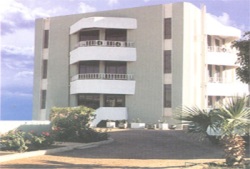Arabic gum company executives suspended over corruption probe
September 3, 2008 (KHARTOUM) – The board of directors for the Gum Arabic company in Sudan suspended two of its executives while they undergo investigations for corruption charges.

The state minister of commerce Al-Sameeh Al-Nour told the daily Al-Sudani that the company’s liabilities on the balance sheet add up to $63 million which is three times its paid in capital.
Al-Nour said that the company’s weak balance sheet threatens its existence but did not specify any steps that will be taken to rectify the situation.
He further said that the suspension of the two executives was agreed to unanimously by the board of directors and denied any “personal factors” in the decision taken.
The Sudanese official said that the committee found that company’s assets such as lands for example were sold at $28,000 a square foot which he described as an “astronomical” price.
The Board of Directors headed will meet Thursday to review the situation. The chairman is presidential adviser Mansour Khalid who is also an adviser to the chief of Sudan People Liberation Movement (SPLM) Salva Kiir.
Khalid has been criticized by some within the company for constant skipping on the board’s meetings.
The Gum Arabic Company, Ltd., holder of the monopoly position for the export of crude Gum Arabic from the Sudan was founded in 1969.
The Sudanese gum is produced in Kordofan region 49.3%, Kassala region 24.4%, Darfur region 23.4 % and White and Blue Nile region 2.9%.
Gum Arabic is a resin that is used as an emulsifier in soft drinks, a thickener in candies and jellies, a binder in special-purpose inks and drugs, even a foam stabilizer in beer. Its name derives from the fact that the gum was shipped to Europe from Arabic ports.
The U.S. buys about one-fourth of Sudan’s annual production of the commodity. Washington excluded the company from its comprehensive sanctions imposed since 1997.
(ST)
